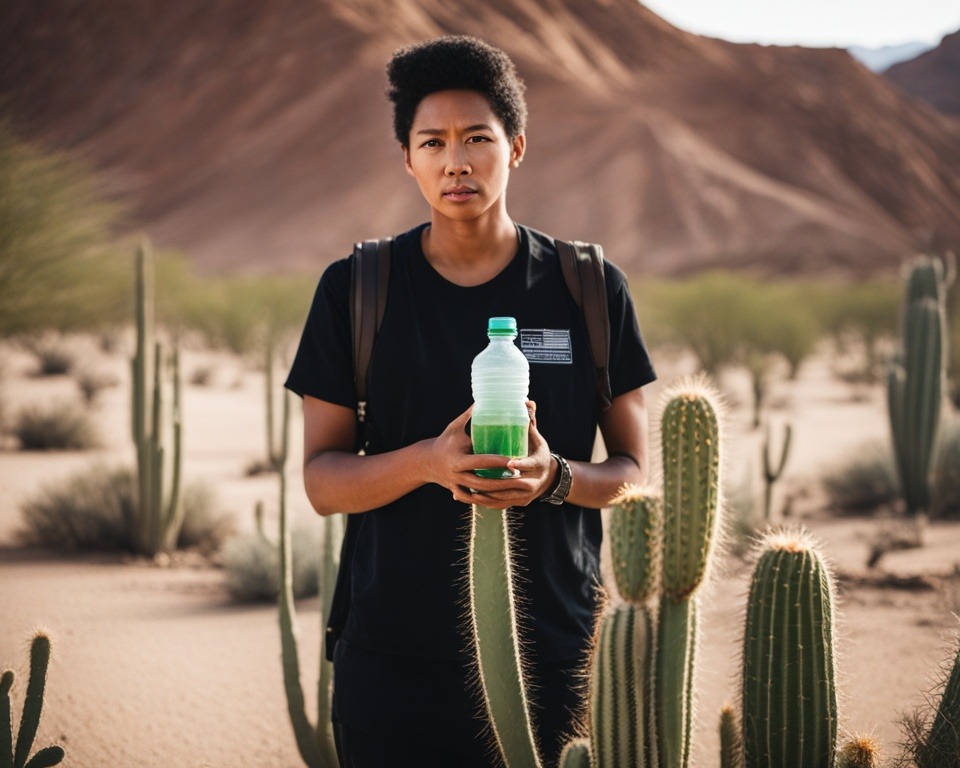Did you know that around 22% of individuals experience persistent dry throat in their lifetime? This condition is even more prevalent among seniors, often due to factors such as aging, medication use, and overall health. Experiencing a constant dry throat even after hydrating with water can be frustrating and bewildering, but it’s not uncommon.
The sensation of having a dry throat even when you’ve consumed enough water typically stems from a reduction in throat moisture, which can be influenced by elevated airflow and various irritants such as high particulate matter. Symptoms of dry throat may include a rough, scratchy feeling inside your throat, sometimes accompanied by difficulties in breathing and swallowing, as well as pain.
It’s crucial to know that treating dry throat effectively means addressing the specific root causes. Allergies, dehydration, mouth breathing, environmental factors, and certain medical conditions can all contribute to persistent dry throat. Recognizing and adapting to these underlying causes are key to finding relief from chronic dry throat symptoms. Tackling these dry throat causes can significantly improve your comfort and quality of life.
Possible Causes of Persistent Dry Throat
A persistent dry throat can stem from various underlying factors, making it essential to identify and address the specific cause. The sensation of throat dryness can be both uncomfortable and concerning, often impacting daily activities and overall well-being. Below, we explore the common causes and provide insights into how to mitigate this issue.
Allergies and Hay Fever
Allergies and hay fever are significant causes of dry throat. Common triggers like pollen, dust mites, and pet dander can prompt immune responses that result in throat irritation. These reactions often manifest as an itchy, dry, or sore throat. Managing your exposure to allergens and using appropriate medications can help alleviate these symptoms.
Dehydration
Dehydration is another prevalent cause of dry throat. Insufficient fluid intake can critically impair saliva production, leaving your throat feeling parched. It’s recommended to drink at least 2 liters of water per day to maintain optimal hydration levels and prevent dry throat symptoms. Ensuring you consume fluids regularly can significantly improve throat moisture.
Mouth Breathing
Mouth breathing, particularly during sleep, can lead to a dry throat. Unlike nasal breathing, mouth breathing allows unhumidified air to enter the mouth and throat, causing irritation. If you wake up with a dry throat, consider evaluating your sleeping habits and exploring solutions such as nasal strips or humidifiers to keep the air moist.
Environmental Factors
Environmental factors like pollution, smog, dry air, and particulate matter can aggravate throat dryness. Exposure to cigarette smoke or air pollution can trigger chronic inflammation in the throat. Utilizing air purifiers and avoiding polluted environments can help manage throat dryness caused by these factors.

Medical Conditions
Various medical conditions can induce dry throat. Gastroesophageal reflux disease (GERD) is a notable example, where stomach contents backflow into the mouth, causing an itchy and dry throat. Respiratory illnesses such as sleep apnea, laryngitis, and viral infections can also lead to throat dryness. Addressing these conditions with appropriate treatments and lifestyle changes can alleviate symptoms.
Why My Throat is Dry Even When I Drink?
Experiencing a dry throat even when drinking water, known as xerostomia, is often tied to inadequate saliva production by the salivary glands. While proper hydration is crucial, sometimes it’s not enough to combat the problem. Dehydration can be a cause, with men needing about 15.5 cups of fluids per day and women requiring 11.5 cups. When you’re not getting enough hydration, whether through drinking water or consuming fruits and vegetables, you may notice your throat feeling persistently dry.

Certain lifestyle habits, like tobacco use and alcohol consumption, can exacerbate dry throat symptoms. Moreover, mouth breathing, especially during sleep, contributes significantly to the discomfort. It’s essential to identify and modify these habits for effective dry throat hydrating solutions.
Medical conditions also play a role. Acid reflux or GERD can cause symptoms like difficulty swallowing or a hoarse voice, leading to persistent dryness. Similarly, conditions like Sjogren’s Syndrome and other autoimmune disorders result in reduced saliva secretion despite adequate hydration. Strep throat and tonsillitis, both infections, manifest in sore and dry throats and often require specific treatments such as antibiotics for strep throat.
Understanding the various factors at play, from the necessity for consistent hydration to the impact of lifestyle choices and medical conditions, is key in finding the right dry throat remedies. Consultation with a healthcare provider for tailored treatment for dry throat is recommended if symptoms persist.
Effective Remedies for a Dry Throat
Managing a dry throat effectively starts with some basic yet essential steps. Hydration remains a key remedy, as men are recommended to drink an average of 15.5 cups of fluid daily, while women should aim for 11.5 cups. Consistently sipping water throughout the day helps maintain moisture levels in your throat. Additionally, incorporating water-rich foods like fruits and vegetables into your diet can provide approximately 27–36% of your daily fluid intake.
Implementing lifestyle changes can also play a significant role in soothing dry throat symptoms. Using a humidifier to add moisture to the air, especially during sleep or in arid environments, can help alleviate throat dryness. Sucking on throat lozenges or sugar-free candies can stimulate saliva production, offering immediate relief. Avoiding dehydrating substances such as caffeine and alcohol, as well as quitting smoking, can further minimize irritation and promote a more hydrated throat.
For those affected by allergies such as hay fever, which can be triggered by grass, pollen, pet dander, mold, and dust mites, over-the-counter antihistamines, decongestants, and allergy shots are proven treatments. Similarly, addressing underlying medical conditions like acid reflux with appropriate medications can reduce dryness. If lifestyle changes and initial remedies do not alleviate your symptoms, it’s advisable to consult a healthcare provider for a thorough evaluation and personalized treatment plan to manage your dry throat effectively.
FAQs
Why is my throat dry even after I drink water?
A dry throat, even after drinking water, can stem from several causes including dehydration, mouth breathing, environmental factors, allergies, and medical conditions. It’s important to identify the root cause to effectively treat it.
What are the symptoms of a dry throat?
Symptoms of a dry throat include a rough, scratchy feeling inside the throat, difficulties in breathing and swallowing, and sometimes pain.
How can I treat my persistent dry throat?
Treatment depends on the underlying cause. Common remedies include staying hydrated, using sugar-free chewing gum, maintaining good oral hygiene, using a humidifier, and addressing allergies or medical conditions.
What are the causes of a chronic dry throat?
Chronic dry throat can be caused by persistent dehydration, allergies, environmental factors, mouth breathing, and certain medical conditions such as acid reflux or respiratory illnesses.
Why is my throat dry, especially at night?
Dry throat at night is often due to mouth breathing during sleep. Environmental factors such as dry air or the use of certain medications can also contribute.
How do allergies and hay fever cause a dry throat?
Allergies and hay fever cause an immune response to triggers like pollen, dust mites, and pet dander. This response can result in inflammation and dryness in your throat.
Can dehydration cause a dry throat?
Yes, dehydration can impair saliva production, leading to a dry throat. Ensuring adequate fluid intake is crucial for maintaining throat moisture.
How does mouth breathing contribute to a dry throat?
Mouth breathing allows unhumidified air to dry out your throat. This is common during sleep or due to nasal congestion and can lead to irritation.
Can environmental factors affect my throat moisture?
Yes, factors like dry air, pollution, smog, and high particulate matter can exacerbate throat dryness.
What medical conditions can cause a dry throat?
Medical conditions such as acid reflux, sleep apnea, laryngitis, and certain viral infections can contribute to throat dryness. Some medications and treatments, like radiation or chemotherapy, also have dry throat as a side effect.
How can I hydrate a dry throat effectively?
Effective hydration methods include sipping water regularly, using sugar-free chewing gum or candies, implementing good oral hygiene, using a humidifier, and avoiding dehydrating substances like caffeine and alcohol.
What are some remedies for managing a dry throat?
Remedies include drinking plenty of water, using saliva substitutes, maintaining oral hygiene, using a humidifier, and addressing environmental or medical factors like allergies or medication side effects.
Can smoking cause a dry throat?
Yes, smoking can irritate and dry out the throat, as well as contribute to various respiratory problems that exacerbate throat dryness.
Does drinking too much caffeine affect throat moisture?
Yes, caffeine is a diuretic that can lead to dehydration, which in turn can cause a dry throat. Limiting caffeine intake can help maintain better throat moisture.
Should I speak to a healthcare provider about my dry throat?
Yes, if your dry throat persists despite home remedies, it is essential to consult a healthcare provider to identify any underlying medical conditions and appropriate treatments.
